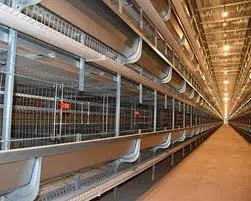Efficient Cleaning Solutions for Poultry House Hygiene and Maintenance
Nov . 08, 2024 11:42 Back to list
Efficient Cleaning Solutions for Poultry House Hygiene and Maintenance
The Importance of Poultry House Washers in Modern Agriculture
In the world of modern agriculture, the need for sanitation and hygiene in poultry farming has never been more critical. As the poultry industry continues to expand, the management of health and cleanliness becomes paramount to prevent disease outbreaks and ensure the welfare of birds. One essential tool that has emerged as a cornerstone in maintaining these standards is the poultry house washer. This innovative piece of equipment not only ensures the cleanliness of poultry houses but also contributes significantly to the overall efficiency and productivity of poultry farming.
Understanding Poultry House Washers
Poultry house washers are specialized cleaning machines designed to remove dirt, debris, and pathogens from poultry housing environments. These washers use high-pressure water jets combined with detergents or disinfectants to effectively sanitize surfaces, including floors, walls, and equipment. By automating the cleaning process, poultry house washers minimize the time and labor required while enhancing the thoroughness of sanitation efforts.
The Role of Hygiene in Poultry Farming
Hygiene in poultry farming is critical for several reasons. First and foremost, a clean environment helps prevent the spread of diseases that can devastate poultry populations, such as avian influenza and Newcastle disease. These illnesses can lead to significant economic losses for farmers and can even have broader implications for food security. Furthermore, maintaining a high level of hygiene contributes to the overall health and productivity of the birds, improving growth rates and egg production.
Dirty environments can harbor harmful pathogens that may affect not only the birds' health but also the safety of the food supply. Given the increasing consumer demand for biosecure and healthy poultry products, farmers must take proactive measures to ensure their operations meet high standards of cleanliness. This is where poultry house washers come into play, offering a solution that aligns with these needs.
Efficiency and Cost-Effectiveness
poultry house washer

The efficiency offered by poultry house washers cannot be overstated
. Traditional cleaning methods, often reliant on manual labor, are time-consuming and prone to human error. In contrast, automated washers can complete the cleaning process in a fraction of the time, allowing farmers to reallocate their resources more effectively. This not only saves time but also reduces labor costs, which can be particularly beneficial for larger operations.Moreover, using a poultry house washer can lead to more consistent cleaning results. With adjustable pressure settings and specialized nozzles, these washers can effectively tackle various contaminants, ensuring that every nook and cranny of the poultry house is thoroughly sanitized. This consistency is crucial in maintaining biosecurity protocols and ensuring that all equipment and surfaces are free from harmful bacteria and viruses.
Environmental Considerations
As sustainability becomes increasingly important in agriculture, poultry house washers can also contribute to more environmentally friendly farming practices. Many modern washers are designed to minimize water consumption while maximizing cleaning effectiveness. This means that farmers can maintain high standards of cleanliness without excessive resource use. Additionally, some washers are compatible with eco-friendly detergents and disinfectants, further reducing the environmental impact of poultry farming operations.
Future Innovations
The poultry industry is continuously evolving, and advancements in technology are paving the way for even more efficient and effective cleaning solutions. Future innovations in poultry house washers may include features such as automated navigation systems, advanced monitoring, and reporting capabilities, and the integration of smart technology that allows farmers to control and manage cleaning processes remotely. Such developments would not only improve operational efficiency but also enhance biosecurity measures within poultry facilities.
Conclusion
In summary, poultry house washers have become indispensable tools in modern poultry farming. Their ability to automate the cleaning process, ensure high standards of hygiene, and contribute to the overall efficiency of farming operations makes them a key investment for poultry producers. As the industry continues to grow and evolve, the role of these machines will undoubtedly expand, paving the way for healthier poultry, safer food production, and more sustainable agricultural practices. Investing in poultry house washers is not just a matter of convenience; it is a critical strategy for success in the competitive landscape of modern agriculture.
-
Efficient & Sustainable Chick Brooding Cage Systems for Modern Poultry Farming
NewsNov.24,2025
-
Cage for Chick: Optimizing Poultry Care for Global Food Security
NewsNov.23,2025
-
Baby Chicks Cage – Global Solutions for Sustainable Poultry Farming
NewsNov.22,2025
-
Baby Chick Cage: The Essential Guide to Brooding Solutions for Poultry Farmers
NewsNov.22,2025
-
Understanding Square Grain Silos: Global Impact, Benefits, and Trends
NewsNov.21,2025
-
Automatic Feeding Line System-Anping County Yize Metal Products Co., Ltd.|Automated Feeding&Watering
NewsNov.21,2025






